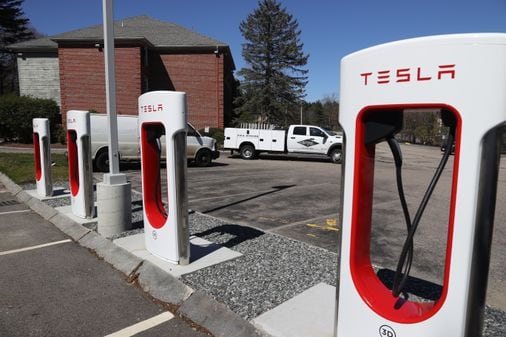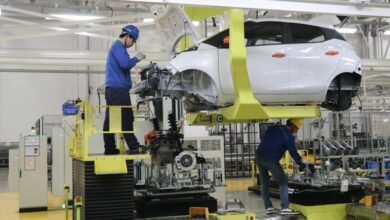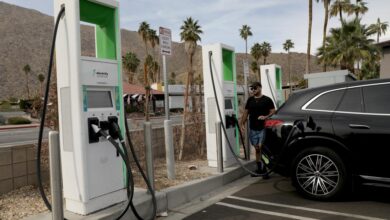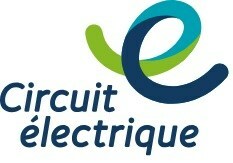Migrant crisis meets EV charging at a Foxborough motel

Starting this month, however, the kids in Foxborough found something new to play with in the parking lot (and some of them did): a dozen shiny, white and red, rectangular consoles, each about the size of a refrigerator, installed by automaker Tesla as a new station for charging electric cars, which can cost anywhere from $40,000 to more than $100,000.
The strange scene reflects the state’s efforts to address two of its biggest challenges: finding beds for an influx of migrants that have overwhelmed the state’s shelter system and meeting its climate goals, which requires installing enough EV charging stations to convince drivers to switch to electric cars.
More broadly, the scene underscores the difficult debate around how to support migrants and the homeless in a state that is one of the wealthiest in the nation, with high incomes, expensive homes, and plenty of Tesla owners. The state will spend over $900 million on emergency shelters for homeless families this fiscal year.
On a bright spring afternoon, a few kids were kicking a soccer ball in the driveway leading to the charging station when a Globe reporter visited. Two young girls, about kindergarten age, sat at the picnic tables and walked over to one of the Tesla consoles. They yanked on the thick black charging cable, and even used the crook of the console as a seat. After a few seconds, an adult called out and the girls ran off.
“It’s a place where children play,” one mother who lives at the site said. Cars heading to the charging station must enter through the driveway where kids often kick or dribble a ball around. She pointed out a lack of any signage warning drivers to slow down or be careful of children playing: “You’d think that would be one of the first things they’d put up.”
On a separate visit, about 20 elementary-school kids living at the shelter hung out in the parking lot on a weekday morning waiting for a Foxborough public school bus pickup and would return in the afternoon after school got out.
Meanwhile, a trickle of electric cars, some quite expensive, came through the lot. A Tesla Model S, seen charging one day, can cost as much as $90,000. The chargers have adapters for non-Teslas as well, and a Ford F-150 Lightning, which can cost more than $80,000, was juicing up on another occasion.
Two people who live at the shelter said children playing with the Tesla chargers is a common occurrence and they feared someone might get electrocuted.
“I’m afraid of what could happen to one of these kids,” said a man who declined to give his name because he said he was ashamed of being homeless and living at the shelter.
On another visit, shelter residents had placed orange traffic cones in front of the two parking spaces for charging nearest the picnic tables, to keep cars away from the kids’ play area. At the beginning of the construction process over the past six months, the charging site was fenced off, but that fencing was removed once all the equipment was installed, people living at the shelter said. Many have been there since September, when the shelter opened.
Tesla did not respond to a request for comment about the placement of the station.
Electrical safety experts said the situation was not ideal but not unsafe. Tesla’s charging stations separate the electrical transformers connected directly to the power grid from the charging consoles, they said. The transformers connect to control and switching equipment inside locked cabinets at the back of the site. Electricity only flows from the cabinets through a console’s charging cable when a driver connects their EV and activates a charging session.
“The good thing with these new technologies coming online, like EV chargers, is that there has been a long set of standards … and lots of safety mechanisms built in,” said Brett Brenner, president of the nonprofit Electrical Safety Foundation International, based in Virginia. “As long as it’s designed safely, installed correctly, and maintained and operated correctly, there should be no risk to the public.”
As part of the transition to electric vehicles, companies are building new charging stations at a rapid clip. Tesla, the largest EV charger operator in the state, opened new stations in Lynnfield and Provincetown at the same time as the station in Foxborough and has another site opening soon in Dedham. The sites use Tesla’s new technology that can charge almost all kinds of EVs, not just Tesla vehicles.
But the company never intended to install a charging station next to a shelter, according to the Foxborough town manager and the site’s owner.
The process of selecting sites for EV charging stations and applying for building permits and utility connections takes months even before construction begins. Tesla’s contractor was awarded a building permit for the Foxborough site on July 2, 2023, according to a copy of the permit. The town did not learn about the state’s plan to use the Comfort Inn as a shelter until August, town manager Paige Duncan said.
“The hotel initiated the installation of chargers on the corporate level well before any migrants or homeless individuals were accommodated,” Duncan wrote in an email to the Globe. “Regarding the proximity of chargers to areas frequented by children, this decision was made at the corporate level by external parties (the State for placement at the hotel — the town was not consulted) and the hotel’s corporate management for charger placement.”
The station was installed in accordance with all electrical code regulations, Duncan added. “It’s understood that parents should supervise their children’s activities outdoors,” she wrote.
In a statement, Giri Hotels, which owns the site, said the chargers were located “across the parking lot and at a safe distance 65 feet away from the building.” Giri approved the installation “before the housing of migrant residents, in an effort to accommodate electric vehicles.”
The state’s Executive Office of Housing and Livable Communities, responsible for housing the migrants, said it had not received complaints from residents about the chargers in Foxborough. “The safety of residents in Emergency Assistance shelter is a priority and staff work to address concerns when they are brought to our attention,” the agency said in an emailed statement.
So far, the charging station has not been very busy. Since opening this month, it has only been lightly used by EV drivers needing a charge, according to a usage graph in Tesla’s mobile app. The new station in Lynnfield, located in a strip mall — a more typical charging site — has been busier.

The Foxborough setting didn’t bother one Tesla Model 3 driver using the station last week. “I like it, I think [the location is] fine,” said Von, the driver who gave only his first name to protect his privacy. “We need more chargers.” (He said he gets free charging from Tesla and goes to the station regularly.)
And while there doesn’t appear to be any immediate danger to children, Brenner, from the safety foundation, said the site could pose a potential threat in the future.
“Humans are very ingenious about finding ways to get themselves hurt,” he said. “Let’s say five years from now, if those chargers are not maintained and people get into things they’re not supposed to, that’s Pandora’s box.”
Aaron Pressman can be reached at aaron.pressman@globe.com. Follow him @ampressman.



